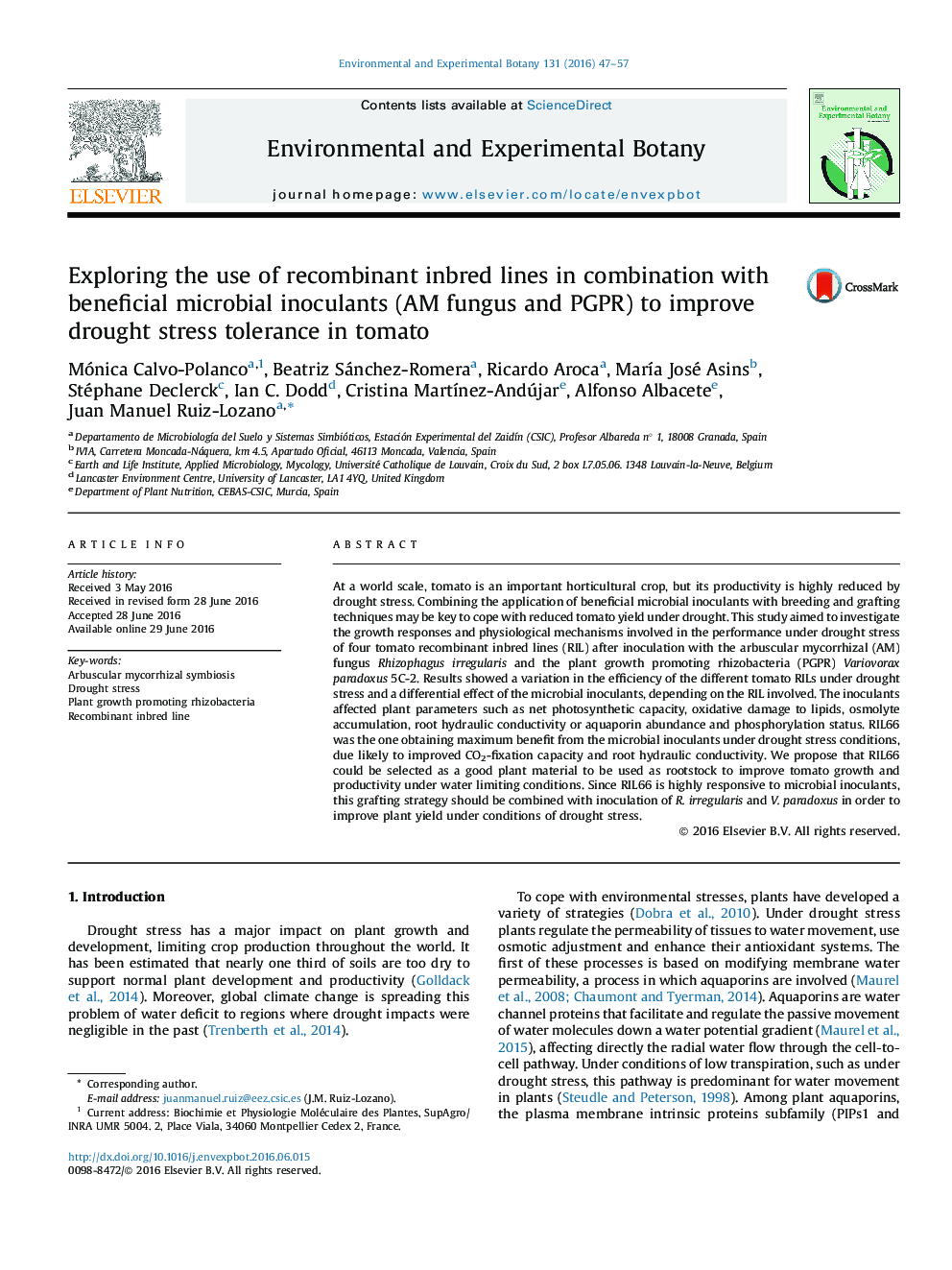| کد مقاله | کد نشریه | سال انتشار | مقاله انگلیسی | نسخه تمام متن |
|---|---|---|---|---|
| 4553998 | 1628046 | 2016 | 11 صفحه PDF | دانلود رایگان |

• We investigated growth and physiological responses of tomato RILs under drought.
• Plants were inoculated with an AM fungus and/or a PGPR.
• Performance of RILs under drought varied according to the microbial inoculant applied.
• RIL66 obtained the maximum benefit from the microbial inoculants under drought.
• RIL66 should be selected as a good rootstock in combination with AM fungus and PGPR.
At a world scale, tomato is an important horticultural crop, but its productivity is highly reduced by drought stress. Combining the application of beneficial microbial inoculants with breeding and grafting techniques may be key to cope with reduced tomato yield under drought. This study aimed to investigate the growth responses and physiological mechanisms involved in the performance under drought stress of four tomato recombinant inbred lines (RIL) after inoculation with the arbuscular mycorrhizal (AM) fungus Rhizophagus irregularis and the plant growth promoting rhizobacteria (PGPR) Variovorax paradoxus 5C-2. Results showed a variation in the efficiency of the different tomato RILs under drought stress and a differential effect of the microbial inoculants, depending on the RIL involved. The inoculants affected plant parameters such as net photosynthetic capacity, oxidative damage to lipids, osmolyte accumulation, root hydraulic conductivity or aquaporin abundance and phosphorylation status. RIL66 was the one obtaining maximum benefit from the microbial inoculants under drought stress conditions, due likely to improved CO2-fixation capacity and root hydraulic conductivity. We propose that RIL66 could be selected as a good plant material to be used as rootstock to improve tomato growth and productivity under water limiting conditions. Since RIL66 is highly responsive to microbial inoculants, this grafting strategy should be combined with inoculation of R. irregularis and V. paradoxus in order to improve plant yield under conditions of drought stress.
Journal: Environmental and Experimental Botany - Volume 131, November 2016, Pages 47–57